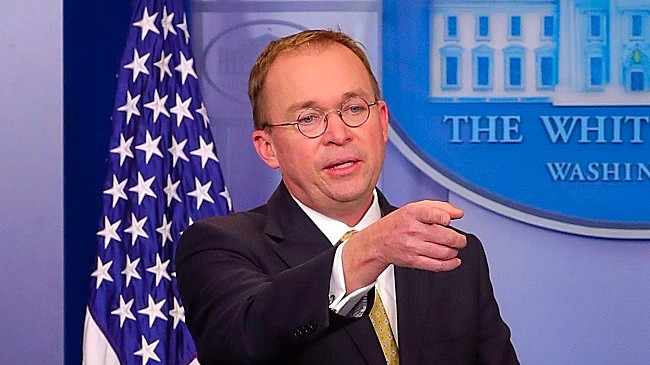
Officials at the consumer credit reporting agency Equifax revealed last September that hackers had stolen the personal data of 143 million Americans. The company then misled worried customers with links to insecure websites to help them determine whether their information was compromised, while additional hacks were revealed in subsequent news reports and during congressional testimony. Hence why former Consumer Financial Protection Bureau chief Richard Cordray authorized an in-depth investigation into the matter. Yet Mick Mulvaney, Cordray’s controversial replacement, has reportedly pulled it back.
According to Reuters, Mulvaney has reportedly “pulled back from a full-scale probe” like the one his ousted predecessor had endorsed:
Three sources say, though, Mulvaney, the new CFPB chief, has not ordered subpoenas against Equifax or sought sworn testimony from executives, routine steps when launching a full-scale probe. Meanwhile the CFPB has shelved plans for on-the-ground tests of how Equifax protects data, an idea backed by Cordray.
The CFPB also recently rebuffed bank regulators at the Federal Reserve, Federal Deposit Insurance Corp and Office of the Comptroller of the Currency when they offered to help with on-site exams of credit bureaus, said two sources familiar with the matter.
Cordray authorized such an investigation in September, soon after the initial reports of the hack went public. Following his resignation, however, the CFPB briefly fell into public disarray as the acting director attempted to block Mulvaney’s appointment with a lawsuit. The new chief has since requested no quarterly funding for the bureau. Whether any of this has specifically to do with the CFPB’s apparent decision not to pursue Equifax so vehemently remains to be seen. Nor does this mean the company is off the hook, as the Federal Trade Commission and “every state attorney general” are investigating the breach.
(Via Reuters)
